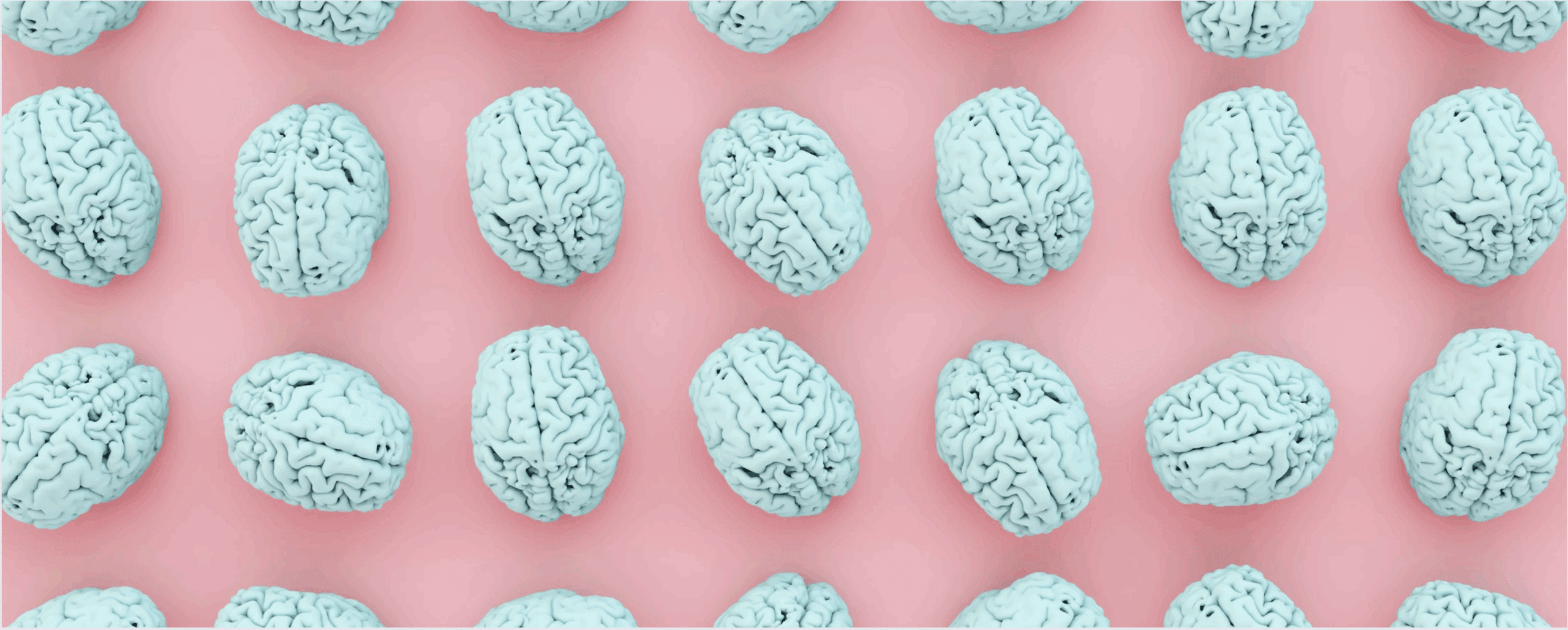Obsessive-compulsive disorder, or OCD for short, is more than having a few quirky behaviors. People who have OCD struggle to overcome the anxious and worrisome feelings and thoughts that pervade their minds. Although they know the symptoms originate in their minds, they can’t simply turn off their OCD thoughts and behaviors. Overall, obsessive-compulsive disorder can significantly stunt someone’s life trajectory if it is not treated. Let’s go over some of the common misconceptions about OCD to explore what the disorder actually entails.
What Is Obsessive-Compulsive Disorder (OCD)?
Obsessive-compulsive disorder (OCD) is a behavioral mental health disorder that affects one in 40 people—2.3 percent of the population. The condition is characterized as having repeated obsessions and compulsions, which are intrusive thoughts and uncontrollable behaviors based on the thoughts. Because these patterns repeat themselves, individuals get stuck in the need to follow through with their compulsions, no matter the time or place. This can lead them to miss out on social interactions or intentionally skip them. Notably, OCD is often a long-term condition. Obsessive-compulsive disorder is not enjoyable and can have debilitating results.
What Are Obsessions?
Obsessions are intruding thoughts, images, or urges that recur frequently and feel inescapable. Although the individual doesn’t want to believe these thoughts, they feel a strong sense of dread or distress from their obsessions. People with OCD often understand the illogic of their obsessions, but they still feel a strong desire to resolve them by acting out compulsions.
What Are Compulsions?
Compulsions are the outcome of obsessions. The person’s mind convinces them they must do something particular to prevent their obsession from happening. Markedly, individuals understand their compulsion is a temporary fix, and often, they get caught in the trap of completing the action over and over again. Undeniably, fulfilling a compulsion can be a frustrating but paralyzing experience. People may cancel social plans because their to-do list includes too many compulsions they must act on.
Facts About OCD
While there are many misconceptions about OCD, there are also proven facts about the disorder. When determining whether you or someone you love might have OCD, consider these factors.
OCD Can Manifest in Different Ways
Although OCD has a distinct structure of obsessions leading to compulsions, there are countless types of OCD. The way one person experiences OCD can vary drastically from another person. There tend to be some common categories of obsessions and compulsions that differentiate how OCD manifests in an individual. For example, contamination OCD has an excessive root fear of germs and disease, while scrupulosity OCD has obsessive concerns centering around religion and morals.
OCD Affects People from All Walks of Life
Although OCD seems to have a genetic link, people of all socioeconomic backgrounds and ethnicities develop the disorder. Men and women can have OCD, though women are 1.6 times more likely and usually have symptoms for longer. Because OCD has a neurological basis, anyone can be affected. So, is OCD genetic? Genetic factors do play a role, but there’s no one gene that is connected to the onset of the disorder.
OCD Is Often Linked with Other Mental Health Disorders
OCD can be tricky to diagnose because its symptoms are similar to many other behavioral and mental health disorders. For instance, hoarding disorder, body-focused repetitive behaviors (BFRB), and Tourette syndrome have overlapping symptoms with OCD. Further, obsessive-compulsive personality disorder (OCPD), schizophrenia, and disorders of the autism spectrum may be linked to OCD.
Get confidential help from our addiction and mental health treatment facilities located across the United States. Call to join one of our quality programs today!
Speak With Our Admissions TeamCommon Myths About OCD
Now that you know the facts, you can dismiss these common myths about OCD.
Myth 1: OCD Is Just About Being Neat and Organized
Although perfectionism and neatness can be forms of obsessions and compulsions, OCD is far from having a tidy personality. And some people with the disorder may not have any traits associated with cleanliness.
Myth 2: Everyone Is “A Little OCD” Sometimes
The concept that everyone is a little bit OCD is incorrect. Additionally, it can be offensive to those whose lives are significantly altered by their behaviors. OCD isn’t something that can be turned on or off, and it doesn’t sit dormant until an ideal time.
Myth 3: People with OCD Can Just Stop Their Behaviors If They Try
It’s not true that people with OCD choose when and where to act on their behaviors or what that looks like. People with OCD can’t turn it off. They are powerless to overcome their obsessions and compulsions because it’s not a small matter of mind manipulation. Often, the root fear behind OCD’s obsessions and compulsions is the concern that if the individual doesn’t repeat their actions, something bad will happen. Understandably, this puts a huge weight on the individual and can cause them to feel stressed, frustrated, and out of control.
Looking for quality treatment for substance abuse and mental health that’s also affordable? Aliya Health Group's treatment facilities accept most major insurance providers. Get a free insurance benefits check now!
Check Your CoverageHow Is Obsessive-Compulsive Disorder Treated?
Obsessive-compulsive disorder treatment involves psychotherapy and optional medication management. When combined together into one treatment plan, individuals experience relief from their symptoms and freedom in their choices. At Aliya Health Group, OCD treatment takes a holistic approach, so individuals also engage in experiences that nurture their minds, bodies, and spirits.
Cognitive Behavioral Therapy (CBT)
Cognitive behavioral therapy (CBT) is proven to be the most effective psychotherapy for OCD. By focusing on the individual’s thinking and behavior patterns, the client and therapist determine which have negative and positive outcomes. Additionally, OCD therapists help clients practice new thoughts and behaviors for positive outcomes in their lives.
Medications for OCD
Many people benefit from medication-assisted treatment for the management of their mental disorder symptoms. OCD medication frequently uses antidepressants like SSRIs that increase serotonin, one chemical imbalance found in OCD clients. In some cases, anti-anxiety meds are also prescribed, but your medication will be determined by your unique case.
Finding an OCD Therapist Near Me
Obsessive-compulsive disorder isn’t only debilitating; it’s also frustrating to be isolated in your symptoms with so much pressure on yourself. Finding a knowledgeable treatment center shouldn’t be difficult. At Aliya Health Group, we understand OCD and how it drains individuals. We are equipped to help you overcome your OCD symptoms. Please give our intake team a call to reserve a place in treatment.
- Obsessive-Compulsive Disorder (OCD) – National Institute of Mental Health (NIMH)
- About International OCD Foundation | All There Is To Know About OCD
- Psychiatry.org – What Is are Obsessive-Compulsive and Related Disorders?
- Psychiatry.org – What Is are Obsessive-Compulsive and Related Disorders?
- International OCD Foundation | Disorders Related to OCD














